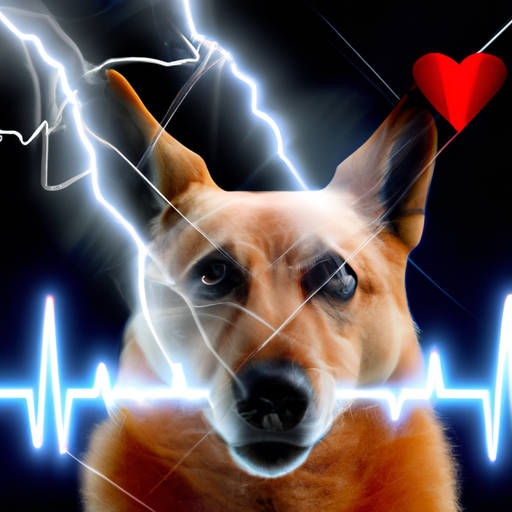Understanding Your Dog’s Heart Rate
Your dog’s heart rate is a critical indicator of its overall health. Just like in humans, a dog’s heart rate can rise due to stress, excitement, exercise, or illness. But it’s important to know what’s normal and what’s dangerously high.
A dog’s normal heart rate varies based on its size and age. Puppies tend to have faster heart rates than adult dogs, while small breeds usually have faster heart rates than larger ones. Here’s a rough guideline:
| Dog Size | Normal Heart Rate (Beats per Minute) |
|---|---|
| Small | 90 – 120 |
| Medium | 70 – 110 |
| Large | 60 – 100 |
Recognizing a Dangerously High Heart Rate
A dangerously high heart rate for a dog, also called tachycardia, can occur due to a variety of reasons, including:
- Heart disease
- Blood loss
- Heat stroke
- Poisoning
- Severe pain
- Infections
You can check your dog’s heart rate by gently feeling the pulse on the inside of its hind leg, just below where the leg joins the body. If the rate is significantly higher than the normal range for your dog’s size and age, it’s time to seek veterinary attention.
Risks and Complications of a High Heart Rate
If your dog’s heart rate remains dangerously high for an extended period, it can lead to serious complications, such as:
- Heart failure
- Organ damage
- Seizures
- Death
Therefore, it’s essential to monitor your pet’s heart rate regularly and seek immediate veterinary care if you notice any abnormality.
Preventing High Heart Rate in Dogs
Prevention is always better than cure. To keep your dog’s heart healthy:
- Provide a balanced diet and ensure regular exercise
- Keep them hydrated, especially during hot weather
- Regularly check for signs of infections and treat promptly
- Keep harmful substances out of their reach
When to See a Vet
If your dog’s heart rate is consistently high, it could be a sign of an underlying health issue that needs immediate attention. Signs your dog may need to see a vet include:
- Rapid breathing
- Weakness or lethargy
- Loss of appetite
- Fainting or collapse
If you notice any of these signs, don’t wait. Seek professional help immediately.
FAQs
Q: Can excitement cause a high heart rate in dogs?
A: Yes, excitement or stress can temporarily increase a dog’s heart rate.
Q: How can I check my dog’s heart rate?
A: You can check your dog’s heart rate by gently feeling the pulse on the inside of its hind leg.
Q: What is a normal heart rate for a small dog?
A: A small dog typically has a heart rate of 90 to 120 beats per minute.
Q: What should I do if my dog’s heart rate is high?
A: If your dog’s heart rate is consistently high, it’s essential to consult with a vet as soon as possible.



